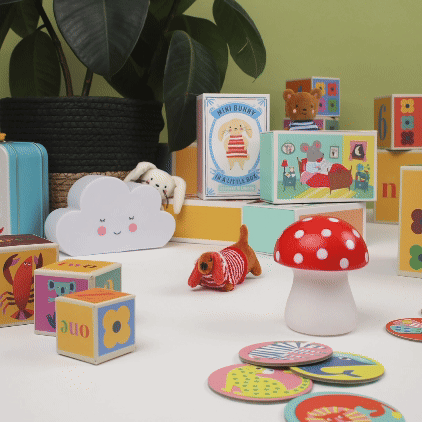What’s your pocket money policy?

How much pocket money should you give your children, and how should they earn it?
Image source: Shutterstock
There’s only one way to teach your kids the value of money, and that’s to give them their own to manage. But how much pocket money should you give? And what tools are out there to help your children learn the financial ropes?
Here’s our guide for parents – everything you need to know to get your pocket money policy right.
To give or not to give

Pictured above: Small Money Box Vintage Globe - £8.95
You buy your kids the things they need when they need them, so why should you give them pocket money too? As we all know, providing for our kids is about much more than putting clothes on their backs and food in their bellies – it’s about giving them the opportunity to learn life lessons in a controlled environment. Corporate Dad says:
“Teaching your child about money is one of the most important life lessons… How to stay out of debt, how to save, how to use credit cards responsibly, the difference between investing and gambling... Money is the most powerful commodity we have, but for all the good it can do, it can get people in serious trouble too. So protect your children.”
We agree. And research by ING Group shows that children who receive pocket money grow up to save more and borrow less as adults.
By allotting each child a weekly sum to spend or save as they wish, you’re teaching children that once it’s gone it’s gone, and in doing so, helping them to avoid a pattern of poor financial decision-making that could spell a whole lot of trouble for them later in life.
As soon as your son or daughter is old enough to understand what money is, they’re old enough to begin to take responsibility for it.
How much?

You’re never too young to learn the value of earning money through work
Image source: Shutterstock
The average UK weekly pocket money spend currently stands at £6.55 per child with nine-year-olds averaging £4.68 and 14-year-olds topping out at £8.03. Figures quoted by the Daily Telegraph also show regional variations, with kids in London pocketing the most - an average of £8.21 per week - while the lowest paid children in East Anglia get just £4.96.
Ignore pressure to pay the same as other mums and dads – give only what you think is appropriate, and what you can afford. If you can, try to be open with older children about your own finances. Doing so reinforces the concept of money as a finite resource, and explains why you can’t always give them what they want.
Some parents make pocket money conditional on the completion of household chores – it’s a great way to teach kids about the link between work and reward. But be wary of setting unhealthy precedents. It’s reasonable to expect children to do their share of routine jobs around the house without demanding payment in return.
How to pay

Pictured above: Rusty The Fox Vinyl Purse - £3.95
Younger children best understand money in its physical form and will enjoying putting their coins in a money box. Buy them a purse too so they can take care of their own money when you go shopping. If children spend all their precious pennies on sweets or treats, they’ll quickly begin to learn that buying something means they won’t have money available to spend on something else.
Introduce older children to a more sophisticated understanding of money by opening a savings account for them and depositing pocket money into it. All the high street banks offer children's current and savings accounts, some with debit cards.
It’s also worth considering a Junior ISA for long term savings. These offer under 18s the opportunity to save up to a yearly allowance of £4,128 (this year) tax free. Once money is deposited though, it cannot be withdrawn until the account holder turns 18.
Go digital

Clever apps can help your children manage their money
Image source: Shutterstock
Popping coins into a money tin or piggy bank is a good way to start teaching kids to look after their money. But in today’s increasingly cashless society, learning the fundamentals of finance also means managing virtual money.
That’s where smart phone apps like Rooster Money and Go Henry can help. Not only do they help keep track of how much your children are receiving, saving and spending, they also provide a wealth of resources and insights on pocket money spending habits, ways to save, and more.
While Rooster Money is a money tracking app, Go Henry incorporates a real bank account – charges apply – with a debit card you can preload, giving your child the ability to withdraw and spend money to a limit set by you.
Want to help your children learn to manage their money? Dotcomgiftshop is here to help:

Vinyl purses from left to right: Hello Strawberry; Hello Pineapple; Hello Watermelon - All £3.95

Vinyl purses from left to right: Teddy the Tiger; Cookie the Cat; Rusty the Fox - All £3.95

From left to right: World of Work Money Tin - £6.95; Colourful Daisies Coin Purse - £3.95; Money Box Vintage Globe - £8.95








